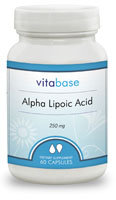| |
Sources of alpha-lipoic acid |
|
| Alpha-lipoic acid can be synthesized by plants and animals. The biosynthetic pathway for alpha-lipoic acid is not known, but it appears to be synthesized in the mitochondria from an 8-carbon fatty acid and elemental sulfur. Most alpha-lipoic acid in food is derived from lipoamide-containing enzymes and is bound to the amino acid, lysine (lipoyllysine). Animal tissues that are rich in lipoyllysine include kidney, heart, and liver, while plant sources that are rich in lipoyllysine include spinach, broccoli, and tomatoes. Somewhat lower amounts of lipoyllysine have been measured in peas, brussel sprouts, and rice bran. Lipoic acid can be found in many common foods such as potatoes, carrots, broccoli, yeasts, beets, yams, and red meat. Dietary sources of ALA include flaxseeds, flaxseed oil, canola (rapeseed) oil, soybeans and soybean oil, pumpkin seeds and pumpkin seed oil, purslane, perilla seed oil, walnuts and walnut oil. The best food sources of lipoic acid are believed to be those foods rich in mitochondria - red meat (skeletal muscle, heart, liver, kidney). Other sources are yeast, spinach, and broccoli. |
|
|
|
|
